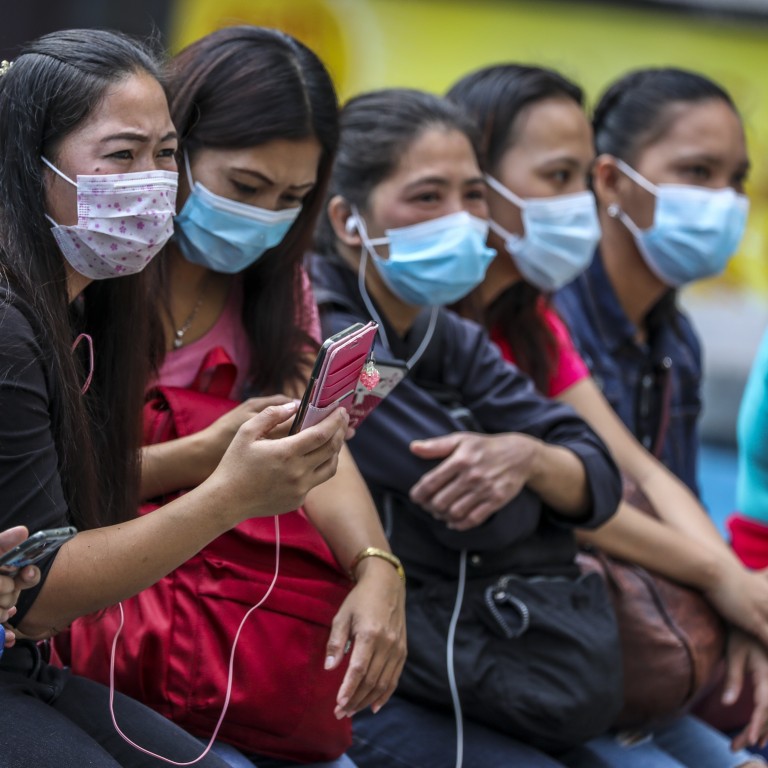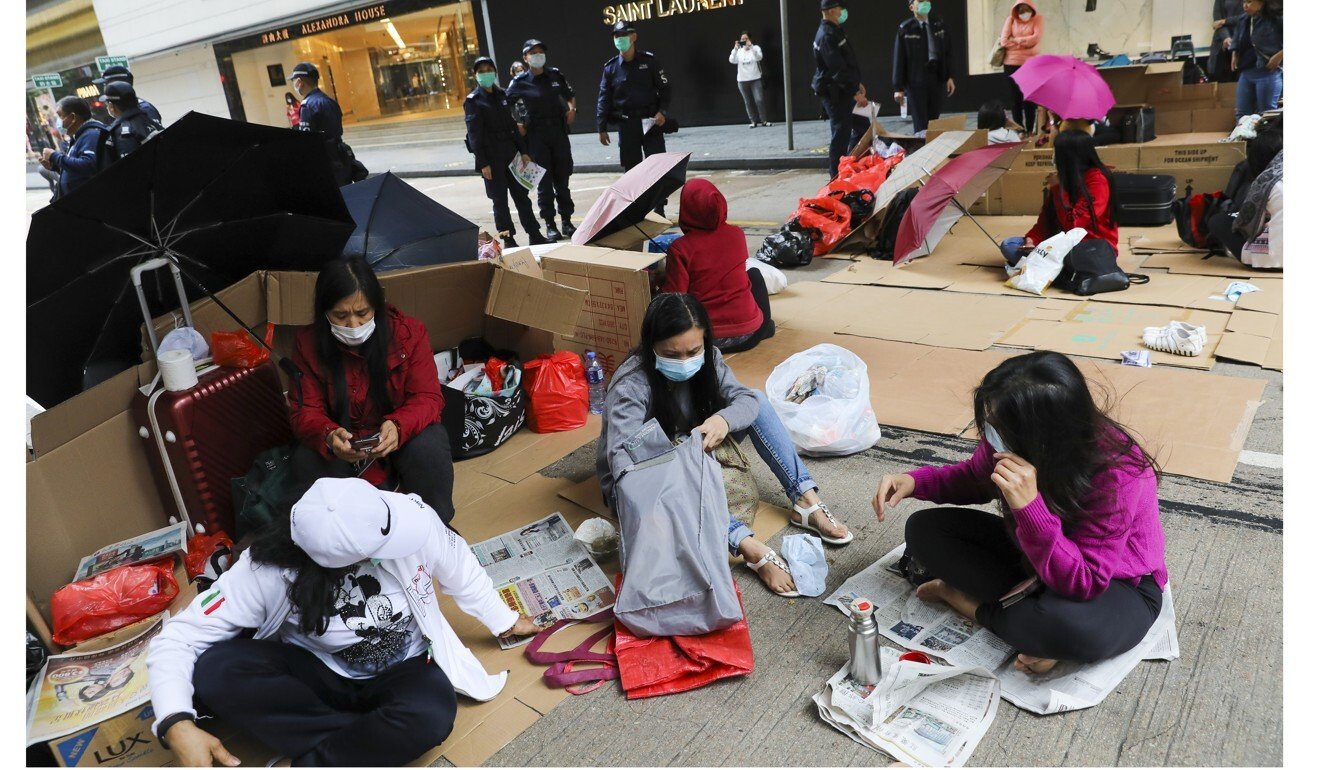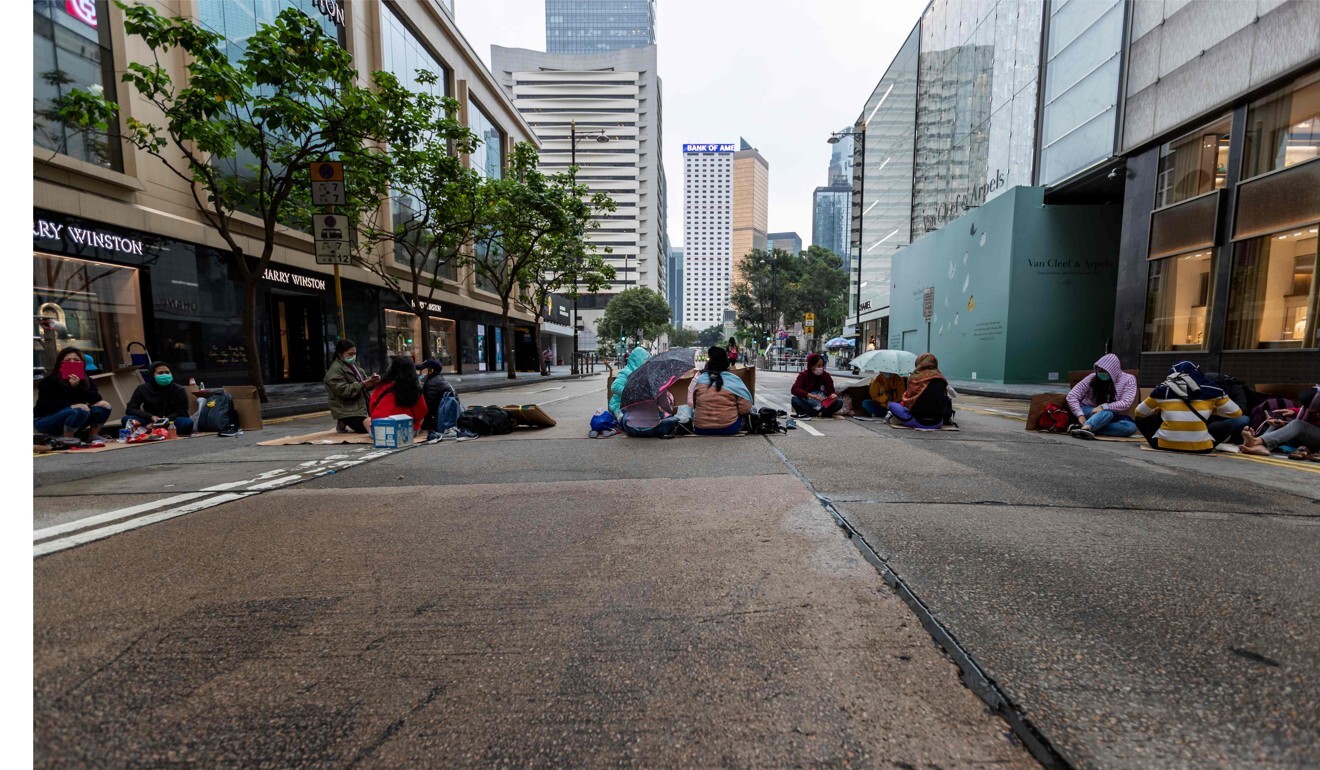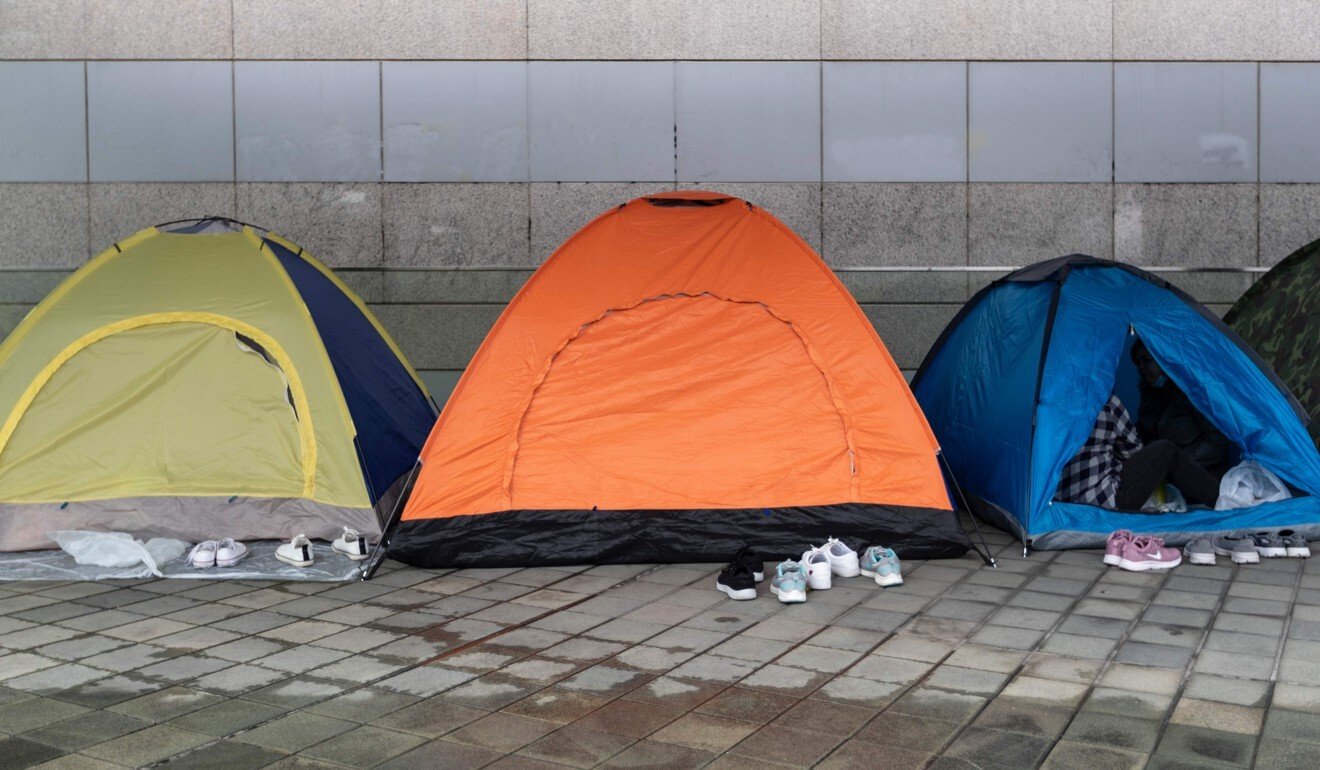
Hong Kong domestic workers ‘angry’ at exclusion from coronavirus relief measures
- Union leaders and advocates say domestic workers should also receive cash handouts designed to help those affected by the Covid-19 crisis
- They accuse the Hong Kong government of discrimination, as many workers complain of being overworked and not getting their weekly day off
“The bottom line is: Hong Kong must provide relief for the domestic workers. But there are no efforts so far. Domestic workers have continued to be excluded. We feel very disappointed and angry because we have been left behind,” said Eni Lestari, an activist and domestic worker from Indonesia.
Stressed, isolated: Migrants face increased mental health risks amid coronavirus crisis
“The government keeps telling us to share the burden, to stay in the house – although that means more work for us – not to meet our friends, and keep Hong Kong safe … but there are no relief measures that include us,” the chairwoman of the International Migrants Alliance said.
Financial Secretary Paul Chan Mo-po in February announced a HK$10,000 handout for permanent residents. After backlash from the community, the scheme will be extended to cover low-income new arrivals, such as one-way permits from the mainland and dependents of permanent residents. But foreign domestic workers, those on working holidays, and those admitted through special talent schemes, would still be not be considered.
Dolores Balladares-Pelaez, spokeswoman for the Asian Migrants’ Coordinating Body, said the exclusion of migrant domestic workers from the financial assistance programme was “unfair and neglectful”.
“When it comes to relief, we are not even considered as human beings in distress,” said the domestic worker from the Philippines. “Is it because in the eyes of the government we are ‘not ordinarily residing’ in Hong Kong? Will the virus not ordinarily affect us? Why are we being neglected in times of crisis?”
Coronavirus fuels rise in Hong Kong domestic worker sackings
More than half of the respondents reported being overworked, as they were asked to do more household chores during this crisis.
The study also showed that one out of five – or about 80,000 migrant domestic workers and carers – were not given their weekly rest day.

“Instead of assistance, the Hong Kong government has been subjecting migrant carers to unjust policies and treatments. Singled out, asked to stay home during rest days, exclusion from cash assistance, no free or accessible Covid-19 testing, and no mechanism of complaint and grievances,” Balladares-Pelaez said.
“If we want to successfully defeat Covid-19, no one should be left out unprotected and vulnerable,” the migrant leader noted.
A spokesman for Hong Kong’s Financial Services and the Treasury Bureau said the HK$10,000 cash handout was to encourage and boost local consumption, while relieving people’s financial burden.
It’s unfortunate that when the government decides on relief packages, oftentimes they ignore foreign domestic workers.
“We have taken into account different factors including the objectives of the scheme, the number of people involved and financial commitments when devising the eligibility criteria, and decided to confine the scheme to people meeting the age and permanent residency criteria,” he said.
At the same time, a spokeswoman for the Community Care Fund Secretariat, which is expected to cover the low-income new arrivals, said the once-off allowance is aimed at helping them to adapt and integrate into the community for permanent settlement in Hong Kong. “Non-permanent residents who come to Hong Kong for other purposes or under other conditions of stay or do not meet the eligibility criteria are not the target beneficiaries of this programme.”
Other governments in the region have also released support measures and cash handouts amid the coronavirus crisis, including Japan, Thailand, and Singapore – where there are more than 255,000 domestic workers. But most subventions are for nationals and permanent residents, and they have also excluded migrant workers.
‘It’s chaos’: Hong Kong’s domestic workers call for help amid coronavirus outbreak
Labour Party lawmaker Dr Fernando Cheung Chiu-hung said foreign domestic workers “play a vital role in helping everyone to fight this war against this pandemic … They have certainly been a main carer for the weak, the old, the sick and the children in Hong Kong”.
He noted that “while they perform their duties, during this difficult time, their freedom has been restricted, their choices and conditions under which they conduct daily life have changed just like the rest of us”.
Providing assistance to them would be “reasonable”, Cheung said.
“It’s unfortunate that when the government decides on relief packages, oftentimes they ignore foreign domestic workers,” the lawmaker said.

Other than including domestic workers in the cash assistance programme, Cheung said there are other measures the government could introduce, such as disseminating information among domestic workers, providing spaces for them to rest on days off, as well as setting up shelters. Most shelters in the city are run by churches and non-profit groups that lack financial support.
Zamira Monteiro of Enrich, a Hong Kong-based charity promoting the economic empowerment of migrant domestic workers, noted that these workers “are making huge contributions behind closed doors, while also worrying about their families back home and dealing with their own financial pressures, such as debt or emergency expenses that are arising at this time”.
Coronavirus: Manila lockdown sparks fears among Filipino domestic workers in Hong Kong
“Domestic workers are one of the groups who aren’t eligible for this government handout, and we do believe that they deserve to be recognised for the crucial role they are playing right now,” Monteiro said.
Such funds would be used by Enrich in programmes that include a one-to-one financial counselling service, which provides confidential and neutral advice for domestic workers in financial distress.
“Empowering domestic workers to be financially literate is mutually beneficial for employers as well … If your helper is financially secure, she would be less likely to need a loan, less stressed, happier and more focused,” Monteiro noted.

The study also showed that foreign domestic workers contributed US$8.2 billion to Singapore’s economy and US$900 million to Malaysia’s.

